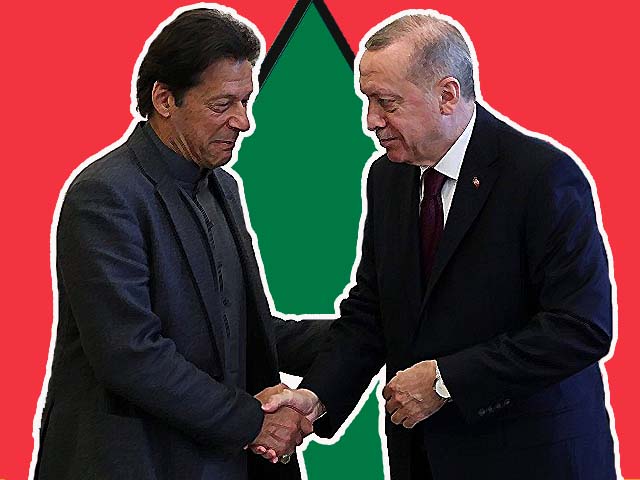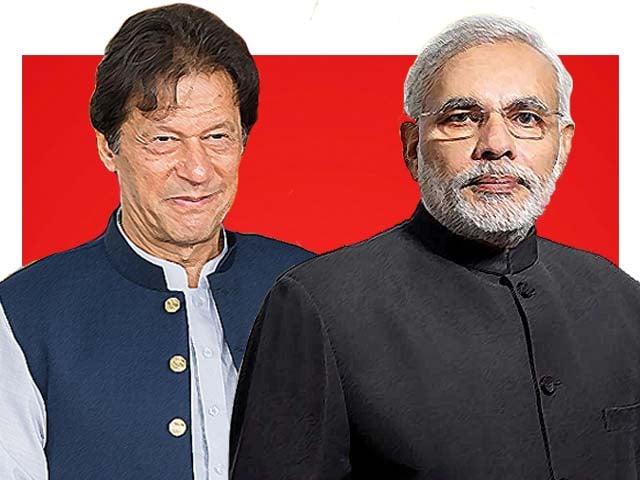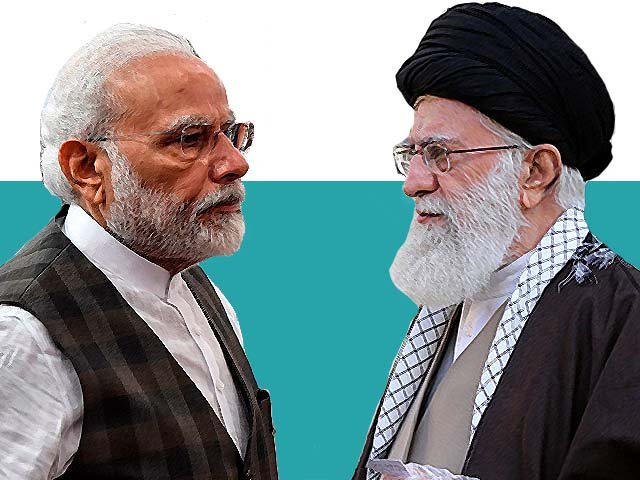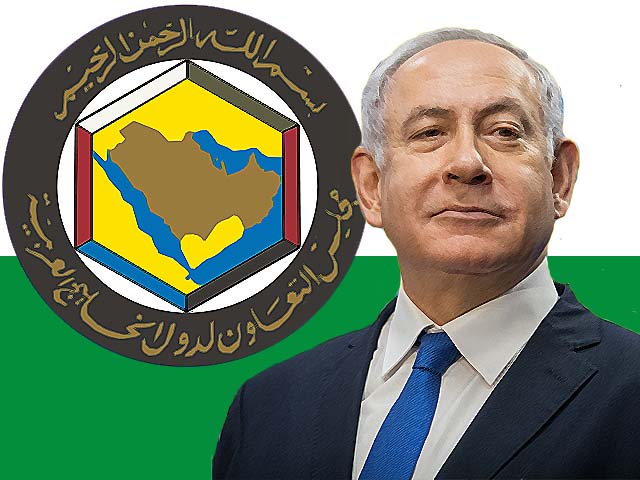
Lessons in tenacity: Why Pakistan should learn from Turkey
Pakistan has a lot to learn from Turkey about knowing when limits imposed by foreign stakeholders need to be pushed
When faced with the seemingly unyielding support of its ostensible NATO ‘partners’ for Kurdish secessionists in the Syrian-Turkish border regions, Turkey faced a veritable conundrum. Turkey’s successful October 9-24, 2019 Operation Peace Spring in northeastern Syria against entrenched, US military-protected Kurdish fighters came after setting red lines regarding its national security, acknowledging that lack of respect afforded to those red lines by traditional partners necessitated threatening core foundational assets of its ties with them, recognising its advantages and constraints and hedging its bets with new foreign allies.
In numerous ways, Turkey’s negotiation of the ordeal vis a vis the Kurds and hostility from influential quarters in the US policy establishment including threats of sanctions can serve as a lesson for Pakistan who currently juggles various quagmires in its handling of rising military tension with India over Kashmir.
Turkey versus Kurds and sanctions
The US support for the Kurdish ‘Syrian Democratic Forces’, a re-branding of the Kurdistan Workers Party (PKK) which waged insurgency in Turkey in the 1980s and 90s, was rooted in its antagonism with the Iran-aligned Syrian government. This support, however, did not waver even as NATO member Turkey increasingly resented it. The Kurds became a focal point for deterioration in US-Turkey ties and Turkey continuously made it clear that the military action would be taken against the Kurds occupying parts of the Syria-Turkey border region.
Turkey, a NATO member since 1952 and host of two of the most strategically vital bases for regional US and NATO operations in Incirlik Air Base and Kurecik Radio Station, bears certain near-intrinsic value for mainstream US military strategists. The air base was used by the US during the 1990-91 Gulf War and the radio station is used as an early warning radar for ballistic missile threats from the Caucasus and northern Levant region. Turkey is also seen in US military-strategic circles as a connecting node between the East and West that must not drift toward a strategically and economically resurgent Russia.
In lieu of these factors, persistent US support to the PKK required Turkey to undergo a ‘rude awakening’ regarding forces in US politics powerful – yet not rational within the context of a pro-West, pro-NATO Turkey – unwilling to respect the Kurdish red line. Turkey had to acknowledge that hastening the deterioration in Turkey-US ties already set in motion by these forces is a necessary sacrifice if Turkey were to neutralise the PKK.
These forces, whose will has been manifesting most notably in the US Congress’ increasingly hostility to Turkey and willingness to clash with President Donald Trump over the treatment mete out to it, possess significant posturing capabilities.
Alongside a pro-Kurdish media increasingly unsympathetic to Turkey, the forces thus signaled strongly to Turkey to leave the Kurds alone. Aside from Qatar and a supportive statement from Pakistan – who has little to no role in Middle East geopolitics – Turkey had no open support for its operation.
Given the source of the Congress’ pro-PKK zeal, correctly identified by analysis in the Turkish Daily Sabah as Israel’s lobbyists, the attempt to browbeat Turkey into backing down was serious. Backing the Kurds brought the US nothing and worsened inter-NATO rifts, but for Israel, in the words of ex-Mossad agent and whistleblower Viktor Ostrovsky, they possessed useful “destabilising possibilities” in the region for decades.
Regardless, Turkey persisted and pushed the matter to the point where the objective fact that the US siding with a non-state actor - seeking out a landlocked ‘country’ surrounded on all sides by hostile states – against a NATO member is a poor choice weighed heavy in the minds of the US military on the ground.
A phone call between Erdogan and Trump on October 6th was held and an agreement reached to pull back US troops and thus facilitate the Turkish assault beginning three days later. Expectedly, immediate bipartisan backlash from Congress ensued.
Trump was forced by Congress pressure into somewhat of a U-turn, announcing sanctions on October 14th on numerous Turkish officials and any affiliated entities involved in the operation in Syria and demanding ceasefire with the Kurds.
Turkey, however, continued the operation until a ceasefire was reached via a meeting between Erdogan and Russian President Vladimir Putin at Sochi, Russia on October 22nd. The Erdogan-Putin Memorandum of Understanding (MoU) established a 32 km deep, 120 km wide buffer zone for Turkey to occupy in northern Syria and a guarantee that Russia and Syria would remove the Kurds and their weapons to beyond the zone.
A day later, Trump lifted the sanctions on Turkey from little over a week ago and approved the ceasefire, portraying it as a multilateral achievement. Syria, Iran, Russia and the US as major stakeholders all endorsed it.
The reality, however, was that Turkey despite mounting pressure from the US Congress as well as the Gulf Cooperation Council (GCC)-Israel bloc increasingly agitated with Turkey’s policies, had its military actions in Syria de facto legitimised and its Kurdish enemy neutralised. Moreover, the ceasefire was achieved through what was essentially a deal between Turkey and Russia, a prime US adversary and whose defence ties with Turkey in the form of the S-400 sales to it already resulted in the latter’s expulsion from the F-35 fighter jet programme in July.
The Congress, however, even whilst ‘approving’ the Erdogan-Putin MoU-ceasefire continued adding sanctions against Turkey which contradicted the ceasefire’s terms. These bills mandated bans on US arms sales to it as well as sanctions on states dealing with Turkey’s military until it withdrew from northeastern Syria, where the ceasefire granted it indefinite military presence.
While still playing the ‘NATO card’ to slow the amplification of US hostility, Turkey continues to hedge its bets against the prospect of pending sanctions bills becoming law.
Turkey is slated to inaugurate with Russia the TurkStream gas pipeline when Putin visits on January 8. The TurkStream, already sanctioned by the US, will carry Russian gas through the Black Sea to Europe via Turkey’s far western region. Such projects serve a decades-old Turkish goal to be the dominant transit hub for energy supplies to Europe, guaranteeing Turkey a reliable source of state revenue via transit fees.
Instead of rolling back its economic ties with Russia in exchange for ‘relief’ from US sanctions, Turkey presses ahead with such projects involving Russia – and thus US sanctions – for the strategic edge of increasing sources of revenue US sanctions cannot force Turkey to lose.
In the context of the Turkish-drift-to-Russia implications US Cold Warriors fear so much (while Israel does not care), the TurkStream is especially provocative to the US. This is because the TurkStream marks Russia’s counter-measure after the January 2014 US-backed coup turned Ukraine, yet the transit route for most of Russia’s gas exports to Europe, hostile to Russia and compelled Russia to find alternate routes to Europe.
The TurkStream’s inauguration will also anger many in Washington as it represents Turkey’s non-participation in the US’ zero-sum game to lower Russia’s share in the European gas market by sanctioning Russian-European energy projects.
Furthermore, Turkey still uses the threat of barring the US military from the Incirlik and Kurecik bases to deter Trump from providing the final presidential signature passing sanctions bills into law.
Pakistan versus the Indo-US partnership on Kashmir
India raised the stakes of the Kashmir conflict with its revocation on August 5, 2019 of the ‘autonomy’ provided to occupied-Jammu and Kashmir, doing away with the last pretenses of openness to dialogue on the disputed region. Pakistan deals now with a military tense situation along the ceasefire line with India in Kashmir and risks of full blown war – which Indian officials have publicly threatened – and also a conundrum of sorts vis a vis the role of the US which Pakistan’s current approach credits as a crucial stakeholder in the Indo-Pak conflict.
The very basis of Pakistan’s attempts to ‘persuade’ the US into ‘mediating’ the Kashmir dispute is inherently flawed, given the now deep level of Indo-US strategic partnership across the region. Long-term mutual objectives bind India and the US together, such as opposing China’s Belt-Road Initiative (BRI) and continued replacement of Russian defence imports by India with American ones.
As documented and analysed by the author, the US has thus far comprehensively sided with India on Kashmir, holding Pakistani ‘terrorism’ as the root cause of the crisis and making no demands of India as it ramps up its oppressive occupation in Kashmir.
Unlike Turkey who understood that a history of close US/NATO ties was proving incapable of ending reckless US support for the Kurds, Pakistan had the luxury of extremely poor past ties with the US due to differences over Afghanistan combined with the Indo-US alliance to act as a lesson ensuring it wasted no time seeking out ‘US mediation’.
The politicisation of the Financial Action Task Force (FATF) by the US and India to apply pressure on Pakistan regarding blacklisting for inadequate measures against money laundering and ‘terror financing’ is an additional source of clarity regarding which side the US is on.
Blacklisting by the FATF as military tensions with India rise will be dangerous for Pakistan. Pakistan’s ability to import vital goods and services such as industrial fuels and machinery, caused by unwillingness by foreign banks and other relevant entities to facilitate transactions involving Pakistani entities would greatly encourage Indian military adventurism.
Notwithstanding the avenues for ‘roughing it out’ in the event of FATF-induced financial-economic isolation Pakistan posses (fuel from nearby Iran and the unlikelihood of China abandoning its CPEC partner), the FATF is more dangerous to Pakistan than the US’ PKK-support to Turkey.
The conditions are conducive for Pakistan to establish a red line by stating unequivocally that Pakistan considers the FATF’s politicised targeting of it during a time of crisis to be part of India’s US-backed war strategy. Raising the stakes and ensuring this new red line is taken seriously by all involved states, Pakistan can then declare it will take drastic measures to defend itself against every aspect of foreign aggression – FATF included – and threaten to shut down the NATO transit route through Pakistan to Afghanistan if the FATF does not drop Pakistan’s case altogether.
Just as was the question forced on the US military by Turkey on the eve of Operation Peace Spring, the ‘dilemma’ posed for the US by Pakistan’s threat will be hastened by the heated Indo-Pak situation to its very one-sided and obvious answer: that the US would rather avert a logistical disaster in Afghanistan than continue enabling India’s reckless warmongering.
Of course, this all necessitates Pakistan to apply reason and properly acknowledge that the US will never support it. Using the cards at its disposal to scale back the US’ role in the Indo-Pak conflict would also set the pretext for Pakistan to seek out allies with which identifiable avenues of strategic cooperation exist through which Pakistan may jockey for backing against India.
Such US rivals exist aplenty to replicate for Pakistan what Russia did for Turkey as Erdogan turned to Putin. Pakistan itself was recently courted by an increasingly coherent bloc of Muslim states willing to back it on issues such as Kashmir and the FATF – and each with declining ties with India – but Pakistan based on weak reasoning and false rationales did not avail the opportunity.
It is clear that Pakistan has a lot to learn from Turkey with regard to tenacity and knowing when seemingly intimidating yet ultimately brittle limits imposed on it by foreign stakeholders restricting its capability to fight its enemy need to be pushed. Pakistan needs to emulate the ability to re-evaluate its notion of foreign partners and allies and do so fairly rapidly – just as Turkey did as Operation Peace Spring was launched.




COMMENTS
Comments are moderated and generally will be posted if they are on-topic and not abusive.
For more information, please see our Comments FAQ